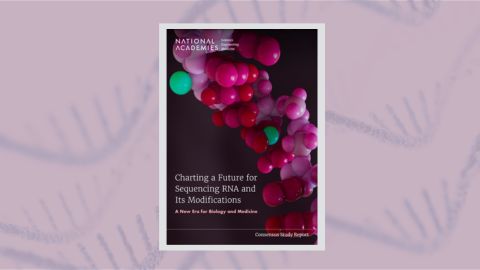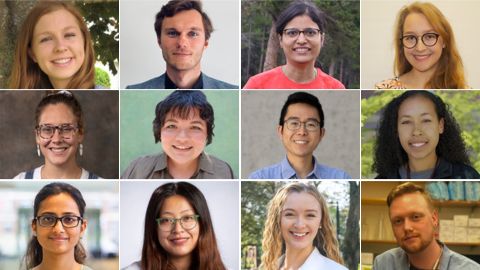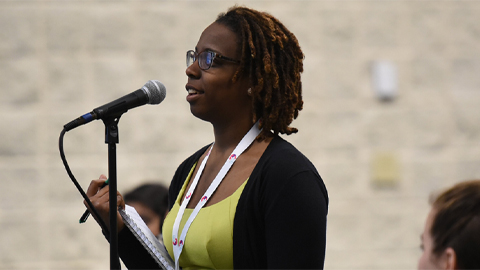ASBMB calls for student loan relief
On June 20, the American Society for Biochemistry and Molecular Biology submitted public hearing testimony to the Department of Education expressing concerns about the growing burden of student loan debt. The society called for expanding debt-relief programs across all educational levels and allowing postdoctoral researchers to defer loan payments until after completion of their training.

“We are in the midst of a student debt crisis, and it's hurting the research enterprise and more importantly, the next generation of scientists,” Sarina Neote, ASBMB public affairs director, said. “The average student debt balance has more than doubled in the past two decades, and this increase is coming at the expense of inclusivity. Student debt disproportionately affects underrepresented groups like Black, Latinx and American Indian students; the scientific workforce and enterprise will narrow and suffer if relief doesn’t come soon.”
Historically marginalized groups such as Black students take on more debt than white students and are more likely to default on their loans.
Recent Ph.D. graduates and postdocs already struggle to cover basic living costs. The student debt burden causes them to delay important milestones, such as purchasing property, which stifles the national economy, the ASBMB noted.
To alleviate these financial burdens and allow the scientific workforce to grow, the ASBMB called for the Education Department to expand public and private service programs similar to the successful National Institutes of Health loan-repayment program. This program aims to counteract “financial pressure by repaying up to $50,000 annually of a researcher’s qualified education debt in return for commitment to engage in NIH mission-relevant research.”
Neote said: “Education attainment and fulfillment should not come with such an unattainably high price tag.”
Enjoy reading ASBMB Today?
Become a member to receive the print edition monthly and the digital edition weekly.
Learn moreFeatured jobs
from the ASBMB career center
Get the latest from ASBMB Today
Enter your email address, and we’ll send you a weekly email with recent articles, interviews and more.
Latest in Policy
Policy highlights or most popular articles

National Academies propose initiative to sequence all RNA molecules
Unlocking the epitranscriptome could transform health, medicine, agriculture, energy and national security.

ATP delegates push for improved policies
This ASBMB program helps advocates gain skills to address issues that affect science and scientists.

Advocacy workshops at Discover BMB 2024
Topics include running for office, becoming an advocate, and navigating the grant review process at the NIH.

NIH’s advisory committee releases report on re-envisioning postdoc training
The working group developed six primary recommendations for the National Institutes of Health.

When authoritative sources hold onto bad data
A legal scholar explains the need for government databases to retract information.

Can science publishing be both open and equitable?
An updated memo from the White House Office of Science and Technology Policy has researchers, funders and publishers looking ahead

